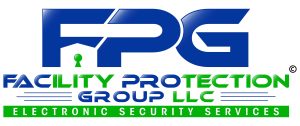 Video surveillance has become an integral part of business security across various industries. From banks to retailers, establishments worldwide rely on cameras to protect their assets, employees, and customers. When it comes to recording and storing video footage, businesses have two primary options: Network Video Recorder (NVR) surveillance systems and cloud-based surveillance systems. In this article, we will explore the differences between these two solutions and help you decide which one is best suited for your business security needs.
Video surveillance has become an integral part of business security across various industries. From banks to retailers, establishments worldwide rely on cameras to protect their assets, employees, and customers. When it comes to recording and storing video footage, businesses have two primary options: Network Video Recorder (NVR) surveillance systems and cloud-based surveillance systems. In this article, we will explore the differences between these two solutions and help you decide which one is best suited for your business security needs.
Understanding NVR Surveillance
NVR stands for Network Video Recorder, a physical device that processes and stores video signals from security cameras. When video is recorded, it is converted into a digital file by an IP camera and sent to the NVR over a local IP network. The NVR then stores the encoded surveillance footage until it can be reviewed by authorized personnel. NVR systems offer several advantages, including better image quality, system flexibility, greater coverage, and the ability to record both visual and audio. These systems are available in both wired and wireless options, with a single cable connecting audio, video, and power. However, NVR surveillance systems can be more expensive than other alternatives, and their software may be less intuitive. Additionally, a strong internet connection is required, and there is a risk of signal loss if the connection is interrupted.
Exploring Cloud Surveillance
Cloud surveillance, on the other hand, involves the remote storage of video recordings on the internet. With cloud-based surveillance systems, video footage is converted into a file and sent to a storage host on the internet. Users can access the recorded videos through a secure webpage using a unique login. Cloud surveillance offers several advantages, including easy setup and use, affordability, accessibility from anywhere with an internet connection, and minimal network maintenance requirements. However, it may slow down the connection speed and requires extra compliance and caution to prevent data hacks.
Comparing NVR and Cloud Surveillance
Both NVR and cloud-based surveillance systems serve the purpose of storing video footage, but they differ in terms of accessibility and convenience. NVR systems require a clean, temperature-controlled setup on-site and need to be plugged into electricity. Each location of a multi-site business will require its own NVR and connected app. On the other hand, cloud surveillance only requires an internet connection, and the cameras can be controlled from multiple devices such as smartphones, computers, or tablets. Once the video is sent to the cloud, it is secured and cannot be tampered with.
Considerations for Your Business
When deciding between NVR and cloud surveillance systems for your business, there are a few factors to consider. For NVR surveillance, you need to be prepared for potential physical setbacks such as storage capacity, overheating, improper installation, or tampering. On the other hand, cloud-based surveillance systems require a secure network connection, anti-virus and malware protection, encrypted data, strong password protection, and updated software to ensure cybersecurity. It is crucial to choose a trusted security vendor who can help you find the best solution for your business.
Video Security Analytics for Businesses
Advancements in technology have led to the development of video analytics for both NVR and cloud surveillance systems. These analytics include features such as people counting, line crossing detection, loitering detection, and camera tampering. Cloud surveillance systems, with their powerful computing capabilities in data centers, use artificial intelligence to run these analytic features. Some NVR systems can also run basic versions of video analytics, depending on the processing speed of the NVR. However, additional software and expenses may be required for advanced analytics on NVR systems.
NVR and Cloud Security Cost Comparison
The cost of implementing an NVR system is typically paid upfront, making it a significant one-time investment for businesses. However, the cost of repairs or replacements for NVR hardware may arise depending on the warranty. NVR systems also require businesses to determine the amount of hard drive space needed for their system, considering factors such as retention time and camera resolution. On the other hand, cloud-based video management systems operate on a subscription or Software-as-a-Service (SaaS) model, where users pay a monthly or annual fee. This fee includes storage, software upgrades, and any necessary hardware. Cloud systems offer more flexibility, allowing businesses to scale up or down and pay only for the data and storage they use. Total Cost of Ownership (TCO) studies have shown that cloud systems can offer savings ranging from 20% to 50% compared to hosting VMS applications in a corporate data center or using an NVR system.
Choosing the right video surveillance solution for your business requires careful consideration of various factors. Both NVR and cloud-based surveillance systems have their advantages and considerations. NVR systems offer better image quality, flexibility, and the ability to record audio, but they can be more expensive and require a strong internet connection. On the other hand, cloud surveillance systems provide easy setup, affordable scalability, and remote access, but they may slow down connection speeds and require additional compliance measures. By understanding the differences between these options and assessing your business’s specific needs, you can make an informed decision that ensures the security of your assets, employees, and customers.
Contact Us (877-762-6460) for a free consultation!
View Past Projects
—
 About Facility Protection Group
About Facility Protection Group
Facility Protection Group is a Certified Systems Integrator based in the Southeastern United States, specializing in electronic security services supporting both traditional and cloud based Access Control (Card Access), Video Surveillance / CCTV, Audio / Video Intercoms, and Intrusion Alarm Systems. Founded in 2018 and located in Tampa, Florida; Facility Protection Group has assembled a team that has a tremendous wealth of industry knowledge and experience.

 About Facility Protection Group
About Facility Protection Group